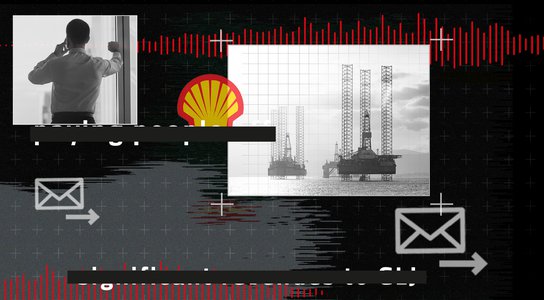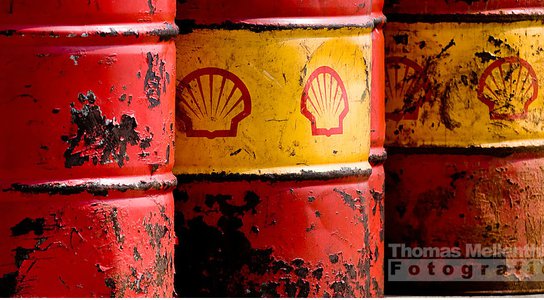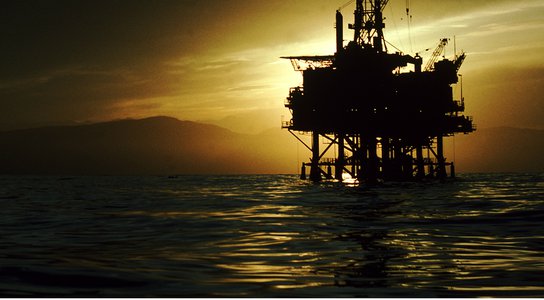Yesterday Global Witness and Finance Uncovered exposed leaked emails that revealed Shell knowingly participated in a vast bribery scheme for one of Africa’s most valuable oil blocks, which deprived Nigeria and its people of $1.1billion.
Global Witness’ investigations into the case have exposed how Shell’s most senior decision-makers knew that the money they paid for oil block OPL 245 would go to convicted money launderer and ex-Nigerian oil minister Dan Etete, via his Malabu company – rather than to benefit the Nigerian people. For six years, Shell has consistently denied any wrong-doing, saying it only paid the Nigerian government.
Today, Shell shifted its position.
In a statement to the New York Times, Andy Norman, Vice President for Global Media Relations at Shell, said:
“Over time, it became clear to us that Etete was involved in Malabu and that the only way to resolve the impasse through a negotiated settlement was to engage with Etete and Malabu, whether we liked it or not”. He added Shell knew that the Nigerian government “would compensate Malabu to settle its claim on the block”.
Simon Taylor, founder of Global Witness, said:
“This is a huge U-turn that reveals Shell’s duplicity. For six years it has asserted it only paid the Nigerian government, insisting it has “never been anything but transparent” about the deal for the oil block, and that its actions were “morally OK”.
“Now its private emails have come to light, Shell has admitted it dealt with Etete – a convicted money launderer – to ensure it got its hands on this valuable oil block, at the expense of the Nigerian people. This shows that Shell has not only knowingly deprived a country of life-saving funds, but has repeatedly misled its investors and the broader public over this corrupt deal.”
When today contacted by Global Witness, Andy Norman said: “I’ve got nothing to add to those comments”.
Statements made by Shell:
2011: "Any payments relating to the issuance of the licence were made only to the Federal Government of Nigeria. No payments were made by Nigeria Agip Exploration and/or Shell Nigeria Exploration and Production Company to Malabu Oil and Gas in respect of the licence.” Shell spokesperson in statement to Global Witness dated 7 December 2011
2012: “Shell was not aware that that money was to be paid to Malabu”. Precious Okolobo, Shell communications officer, as quoted in Nigeria’s Premium Times, 21 May 2012
2015: “We have never been anything but transparent about this – there is no risk or nothing extraordinary about this transaction that should concern our shareholders... we believe the payment was entirely made in accordance with the law of Nigeria and international practice, morally okay”. Ben Van Beurden to Barnaby Pace, Global Witness, 19 May 2015
2015: “As we have previously stated, no payments were made by any Shell company to Malabu Oil and Gas in relation to the issuance by the Federal Government of Nigeria (FGN) of the OPL 245 licence to Shell Nigerian Exploration & Production Ltd and Nigerian Agip Energy (NAE).” Andrew Vickers, Shell’s Vice President NGO and Stakeholder Relations, in a letter to Global Witness.
Shell statement to New York Times following Global Witness revelations, 10 April 2017:
On Monday, Shell said that it knew that some of the money paid to the Nigerian government would be passed on to a company called Malabu Oil and Gas, which claimed the same tract. In an unrelated 2012 civil suit in New York against Malabu, court documents said Malabu’s principal was Dan Etete, a former Nigerian oil minister.
On Monday, Mr. Norman, the spokesman for Shell, said in an email that the company assumed it had no choice but to come to a sort of deal with Mr. Etete and Malabu. “Over time, it became clear to us that Etete was involved in Malabu and that the only way to resolve the impasse through a negotiated settlement was to engage with Etete and Malabu, whether we liked it or not,” he wrote, adding that Shell knew that the Nigerian government “would compensate Malabu to settle its claim on the block.”
Still, Mr. Norman said, “we believe that the settlement was a fully legal transaction” with the government of Nigeria.
/ ENDS
Contacts
-
Oliver Courtney
Notes to editor:
- Global Witness’ press release: New leaked emails put Shell at centre of billion dollar bribery scheme involving some of the most powerful officials in Nigeria
- Global Witness report: Shell Knew
You might also like
-
Report Shell Knew
Emails show senior executives at world’s fifth largest company knowingly took part in a vast bribery scheme that robbed the Nigerian people of $1.1billion.
-
Press release New leaked emails put Shell at centre of billion dollar bribery scheme involving some of the most powerful officials in Nigeria
Shell’s most senior executives were told payments for massive oil block would go to a convicted money-launderer, and then likely flow to then President Goodluck Jonathan and others, but still went through with the deal
-
Briefing Shell and Eni's Misadventures in Nigeria
In 2011, Shell and Eni paid US$1.1bn for one of West Africa’s largest oil fields, situated off the coast of Nigeria, but the money did not benefit the country’s citizens.